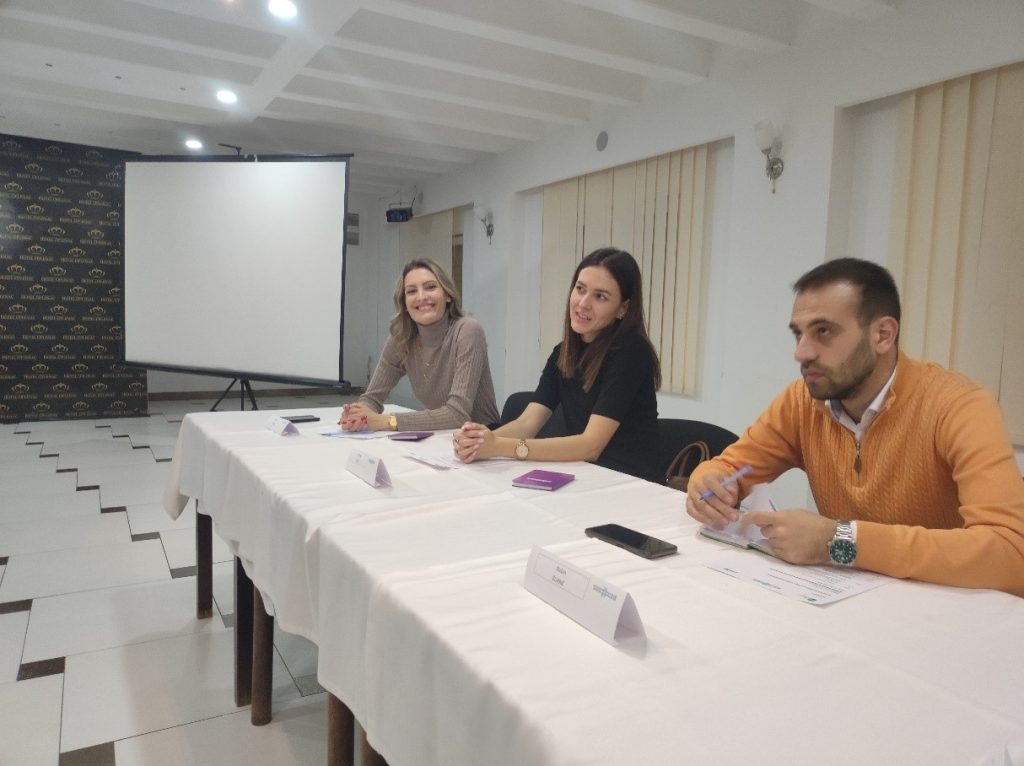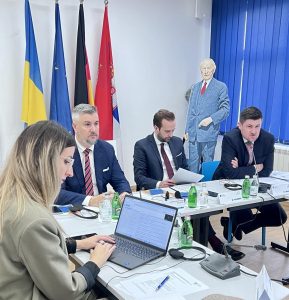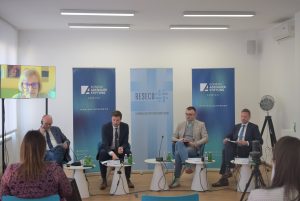As part of the PolitiKAS debate with Young MPs, from October 17th to November 30th, five successful debates were held. The topics discussed were the significance of parliamentary debates, European integration, regional cooperation, and the securitization of different crises. After positive feedback from the MPs about the program and their willingness to improve their theoretical knowledge of the challenges on the path to the EU, the rule of law, and regional initiatives, we recognized the need to organize a final seminar and in this way complete the discussion on the current political challenges facing Serbia. “Parliamentarism in Serbia and crisis management” was the main theme of the seminar.
The final seminar organized by RESECO and the Eduardo Frei Foundation brought together PhD students and researchers from the University of Belgrade’s Faculty of Political Sciences and the Institute for Political Studies in Belgrade to discuss topics related to elections, political systems, political parties, the EU, and the rule of law. During this seminar, the young researchers had a chance to interact with Members of Parliament and discuss the important topics that their research focuses on.
Andrijana Lazarevic, the coordinator of the RESECO project, and Stefan Surlic, the executive director of RESECO, welcomed the participants and emphasized the importance of collaboration between the academic community and politicians, especially during times of crisis. They stressed that it is crucial for citizens to receive reliable and verified information from their representatives, which would make them feel more involved. Speaking about inclusion, Surlic emphasized that academics and young researchers must be more involved in the political processes in their countries and contribute to the response of institutions to crises through their work.
The participants had the opportunity to discuss the challenges of parliamentary democracy in Serbia with the member of the Provincial Assembly of Vojvodina, Dmytro Stanišic. Stanišic conveyed the message that those who want to make a difference and influence reform processes in their societies or countries should get involved in politics, or at least put their research and expertise at the disposal of politicians. The researcher at the Institute for Political Studies in Belgrade, Dušan Radujko, talked to the participants on the topic of “Reform of the rule of law: overcoming formal independence of the judiciary.” Radujko introduced the participants to the basic concepts related to the rule of law, the role of judicial independence in strengthening the rule of law, the consequences of formal independence and its limits, etc.
The final activity of the seminar, a lecture by Dr. Stefan Surlic on “Serbian-Albanian Relations: Perspectives of a Multiethnic Society in Kosovo,” served as a framework for discussion of the current challenges that Serbia is facing in its foreign policy.
The seminar achieved its goal to bring together the academic community and politicians to foster collaboration and knowledge-sharing. The discussions during the seminar provided valuable insights and opportunities for both sides to understand and learn from each other, setting a strong foundation for future collaborations that will lead to society progression.









